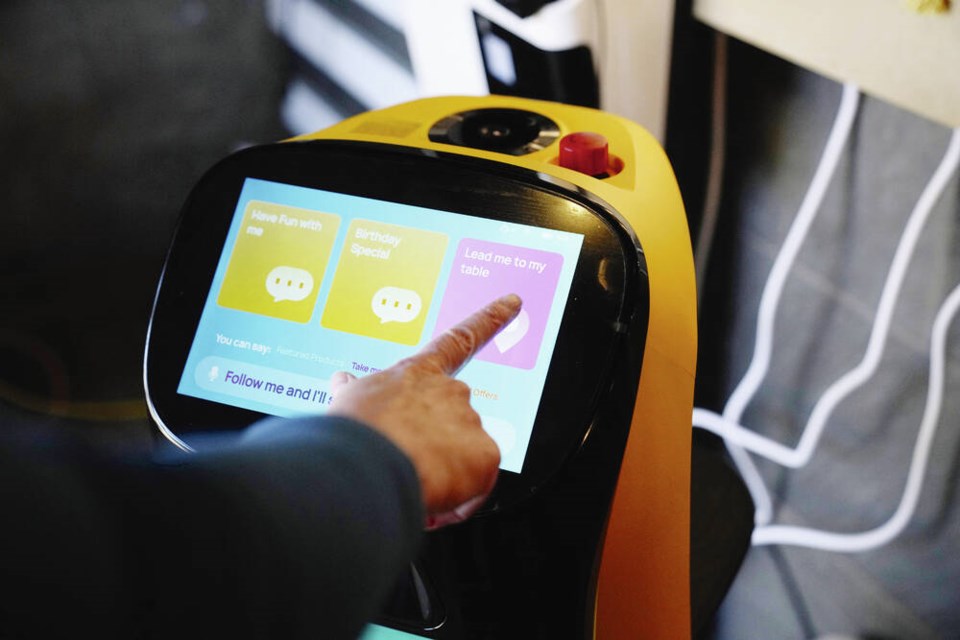I don’t know when I first heard the suggestion that robots should pay taxes, but it was some time in the 1970s, and the idea came from Japan.
The concept was certainly in the air by the 1980s. Matt Novak, who writes the Paleofuture blog (about “the history of the future”), wrote in 2014 about an article in the March-April 1986 issue of The Futurist magazine.
He noted that in the article, the authors, Edith Weiner and Arnold Brown, “examined what they saw as the emerging concerns of the world.”
One of those concerns was: “As robots and computers do more and more work, displacing people in the process, society must come to grips with the matter of the wealth these machines create.”
What they proposed, writes Novak, “was the idea that maybe companies should be paying taxes for the robots they employ to help offset the jobs lost to automation.”
However, we may have to shift our understanding of what we mean by “robot.” Then, and even now, the popular understanding is a machine that replaces workers on an assembly line, or perhaps is your robot servant.
But with the advent of AI, the “robot” may be a program that replaces writers, lawyers, singers and many other services and creative functions. A news item last week concerned a church service in Germany written by a chatbot and led by on-screen avatars.
If a robot replaces a worker, that person loses not only their income and benefits but the important social role of work.
Meanwhile, the robots keep generating wealth. In the pre-robot world, much of that wealth went back out into society as wages that were spread throughout the community in purchases of housing, food and many other goods and services.
But now, all that wealth accumulates to the corporation and its shareholders, although some of it no doubt goes to the designers and manufacturers of the robots — at least until that process is also taken over by robots!
This adds to what historian Peter Turchin, in his new book End Times, calls “the wealth pump.”
According to a June 10 review in The Guardian, Turchin noted that in America in the 1970s, “the social contract established in the 1930s … began to disintegrate.”
As a result, “things began to shift in favour of owners.” In the decades that followed, the rich got a lot richer as “money gushes away from workers and towards the elite.”
Now add to that the additional pump of workers’ wages being displaced by robots and the profits accumulating to the elite.
This will only heighten the already destabilizing effect of increasing inequality — unless that wealth is instead re-distributed to society. And that means taxing corporate profits directly, taxing the accumulating wealth of the elite, or treating robots as wage-earners and taxing their “income.”
The billions of dollars these taxes would raise could be put to good use. Most obviously, they could fund a guaranteed basic income for everyone, as more and more people are displaced not only from industrial work but many service industry jobs.
They could also be used to re-train workers as part of a just transition to a wellbeing society.
Such a society will need people to provide care and support to other people, establish and maintain community activities, or restore and maintain nature, among many other activities that contribute to wellbeing and that may not be all that amenable to robot workers — indeed, maybe we will need to reserve such work for humans.
I am reminded of another futures study, also from the 1980s. In a report titled Time to Care the Swedish Secretariat for Futures Studies examined the future of care.
One of its more dramatic suggestions was that in the future, people would not be taxed for money to pay for social care, but would be “taxed” for time to provide that care.
Perhaps robots and AI will enable us to get the best of both worlds, with the taxes on robots and the wealth they generate being used to fund the meaningful work of care for people and the planet that lies at the heart of a wellbeing society.
Dr. Trevor Hancock is a retired professor and senior scholar at the University of Victoria’s School of Public Health and Social Policy
>>> To comment on this article, write a letter to the editor: [email protected]



